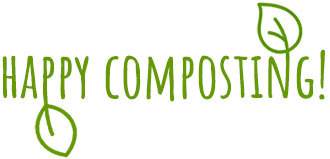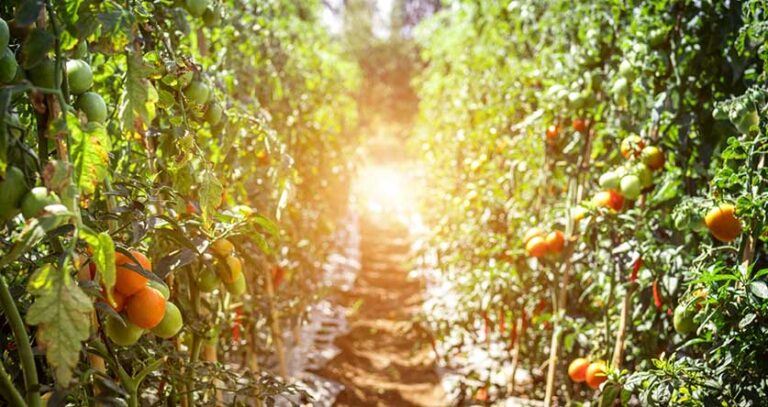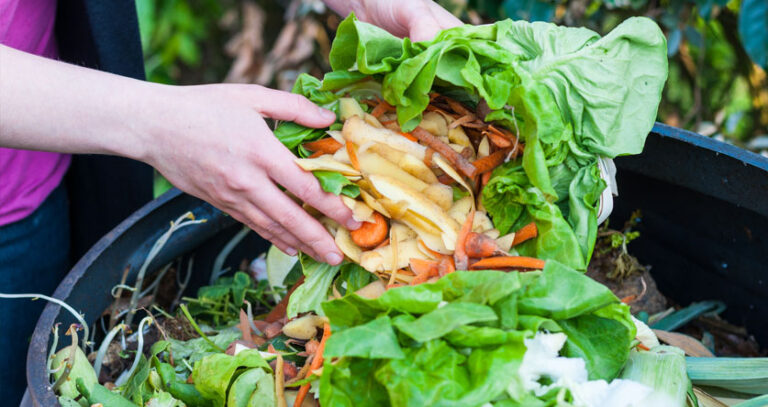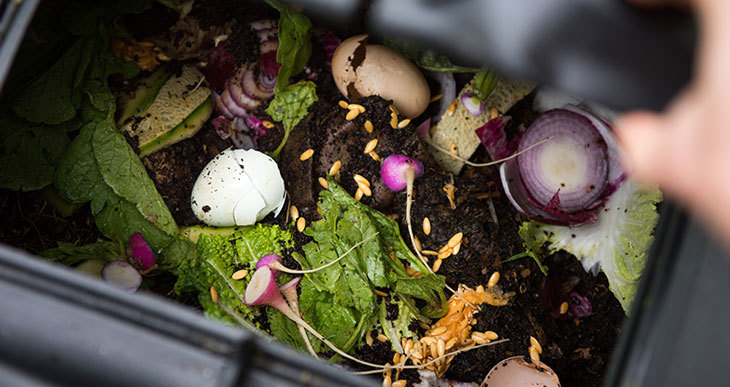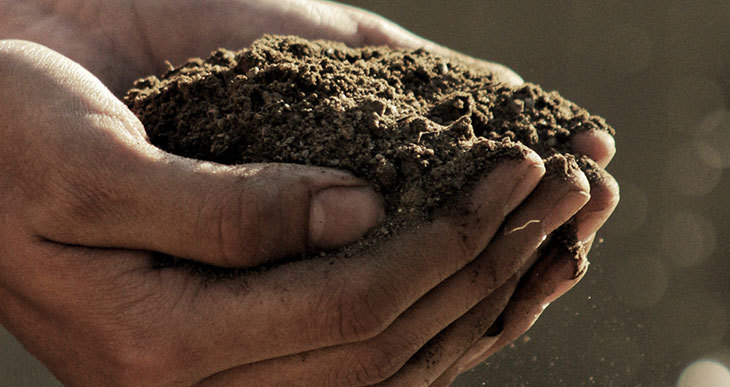Why is Compost Good for Plants (10 Reasons)
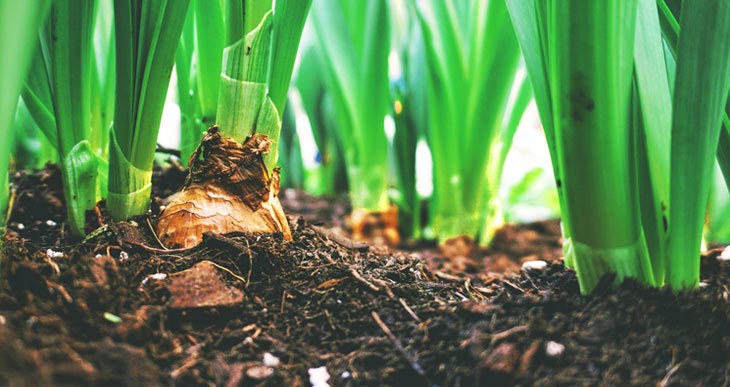
What gardener hasn’t heard of composting?
Are you wondering if composting is worth the extra work? Is compost really any good for your plants?
Over time what I learned was – yes, it is!
To help you understand how compost helps plants, below, you’ll find a list of 10 reasons why composting is beneficial for your gardening endeavors…
Why is Composting Good for Plants?
Compost binds together soil and nutrients that plants need for healthy growth. Not only does compost help keep nutrients in the ground, but it also adds additional micronutrients. Also, compost helps retain moisture, provides much-needed nitrogen, and improves soil structure for better drainage.
Anyone who grows plants knows they live in the soil. But is your garden soil good or bad? You can significantly enrich the quality of your soil simply by adding compost.
Here are 10 reasons compost will make your plants happy. And happy plants mean a happy gardener.
1. Compost improves the structure of the soil.
Better soil structure is more supportive for plants.
The quality of the soil plants live in is probably the most essential factor in plant growth. If your soil is poor, plants will not grow as well, and you won’t be as happy with the results.
Soil structure influences the air pockets in the soil and consequently how air, water, or roots can permeate it.
Soil needs a good mix of inorganic and organic particles. Compost adds organic matter (in the form of humus), which enhances the structure and fabric of the soil.
How do you know that you have a good quality structure? Soil should have a loose texture that allows air to penetrate it. Pick some up—if it crumbles easily into relatively small particles, then you are on your way to healthy soil.
2. Compost provides the correct amount of moisture.
Compost helps to better balance sandy or silty soil particles and clay particles. As a result, improves conditions for healthy plant growth.
If your garden has sandy soil, it won’t hold water. There’s little for the water to hold onto, so it drains away or evaporates quickly. Adding compost gives water something to stick to and improves moisture retention.
Clay soil is the opposite. It holds too much water. Adding compost to clay soil improves the texture and provides gaps for the water to seep out of the clay.
3. Well-drained soil makes for healthier plants.
Not only does compost help keep moisture in your soil, but it also allows it to drain more efficiently.
Compost is considered an “amendment,” meaning it favorably alters soil properties. For example, it improves the soil’s tilth and texture, making it more permeable.
This improved porosity allows for better drainage and prevents waterlogged plants. Too much water in the ground results in insufficient oxygen for roots systems.
4. It provides much-needed nutrients for plants.
Compost contains a large spectrum of nutrients in varying amounts, which is good for your plants!
Plants need a variety of different nutrients from the soil. There are the important ones:
- Nitrogen
- Phosphorous
- Potassium
These are the ingredients commonly found in commercial fertilizers.
Most of those fertilizers lack other essential ingredients, such as:
- manganese
- copper
- iron
- zinc
If this sounds like the ingredients in multi-vitamin supplements, you are right.
Just like us, plants also need tiny doses of trace minerals and micronutrients to help them pull nutrients from the soil, and those micro-nutrients are found in compost.
5. Compost reduces the need for chemical plant fertilizers.
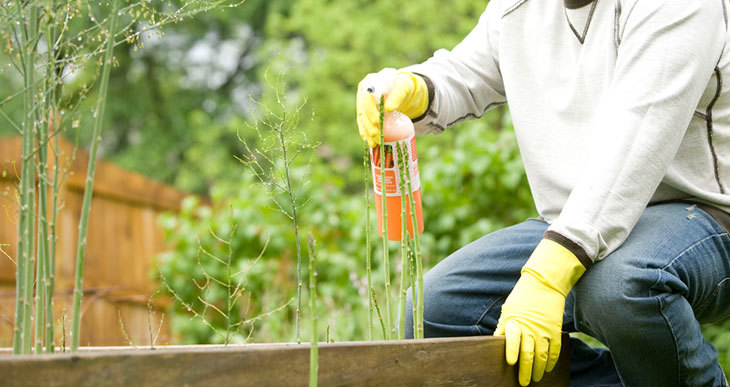
Using compost rather than chemicals could be far more beneficial for your plants.
Chemical fertilizers may have a place in large-scale farming. Still, someone who wants to start a garden or grow vegetables on an individual scale might consider avoiding or at least reducing the use of chemical fertilizers.
As I’ve already said, plants need various nutrients, many of which are not found in chemical fertilizers.
Even if a chemical fertilizer has added some micro-nutrients, it will not replenish them as compost does.
Also, chemical fertilizers will change the pH of the soil over time. PH refers to the amount of acid is in soil, and plants need a proper balance. The use of chemical fertilizers affects that balance, and then to correct it, you will need to add additional nutrients.
It sounds much easier to use something that occurs naturally.
6. A sustainable way to recycle organic waste to feed plants
All the organic waste created by your yard or kitchen can provide rich decomposable material perfect for making compost.
Recycling these materials is a sustainable way to create something beneficial for your garden plants.
If you have a garden or access to one, you probably have access to the ingredients you need to make good compost.
What might you put in compost?
- Grass clippings
- Leaves (preferably cut up)
- Hay and straw
- Kitchen waste (veggies, baked goods, practically anything except meat)
- Paper (like newspaper, cardboard—and your junk mail!)
- Even hair and dryer lint
Most of us have at least some of those things or can access them for free!
7. Increases biodiversity and plant health
Insects and other macroorganisms are attracted to the organic matter in the compost, thus improving the biodiversity in your garden.
Better biodiversity means better growing conditions for plants.
By biodiversity, I mean both what is above ground and underground.
Plants thrive if there is a diversity of life in the soil. Good soil has earthworms, centipedes, and similar little critters that provide several benefits. They crawl through the ground, keeping it loose to allow airflow and drainage. They also provide nutrients for the plants by releasing them via the food that passes through their guts.
There is nothing more delightful to a gardener than digging up a living earthworm because that earthworm is a sign of healthy soil.
Creating good soil diversity will help plants thrive.
8. Compost means fewer garden pests & healthier plants.
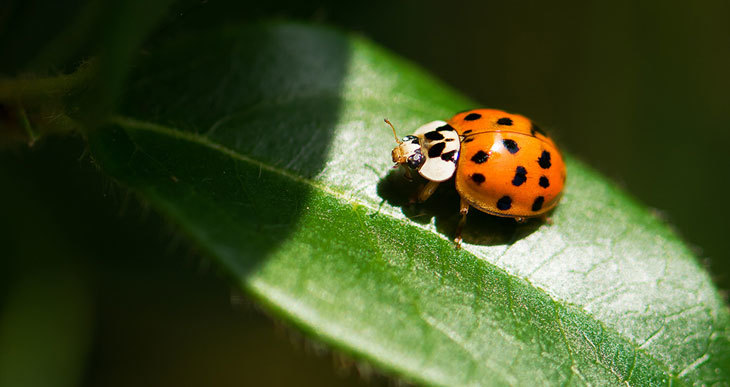
Compost improves conditions for helpful insects, which in turn can reduce garden pests, which is obviously good for your plants.
There’s nothing worse than going out to inspect your garden and seeing that something has been eating the leaves on your plants.
I have seen an entire bed of cauliflower destroyed by cabbage maggots. Aphids are another pest that loves to eat their way through your garden.
Compost will not keep all pests away. However, due to the beneficial insects attracted to the healthier soil that has not had chemical fertilizers applied to it, you have a better chance of attracting beneficial insects.
Ladybugs, praying mantis, ground beetles – all of these are insects you want to have on your side during the battle against pests.
Also, because compost improves nutrient availability, plants tend to be better equipped to resist diseases.
9. Compost creates the best pH level for plants.
Plants thrive best in soil that has a relatively neutral pH. Compost, which tends to have a pH of between 6 and 8, helps regulate and stabilize soil pH and return it to a neutral level.
(Remember that pH is a measure of the relative acidity or alkalinity of something. A pH level of 7 is what we consider neutral).
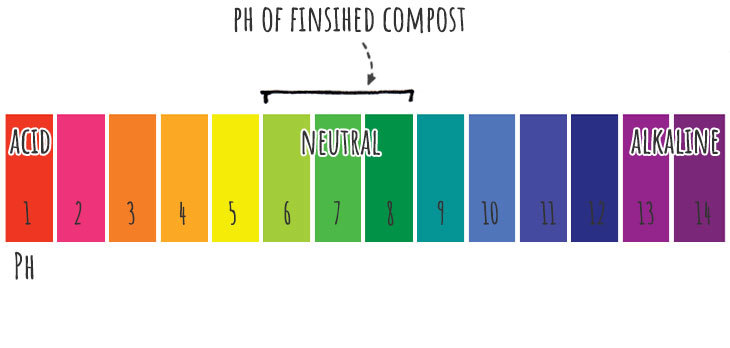
Compost becomes more and more neutral as it matures. By adding this to the soil, you naturally modify its pH balance. Compost will raise the pH of acidic soil or lower the pH if you have alkaline conditions.
This is good for plants because a neutral pH boosts the availability of nutrients in the soil.
10. Composting saves you money to buy more plants!
In addition to all the other benefits of compost for your plants, it also positively impacts your budget!
Composting saves you money in various ways. And the money you save could be spent on more plants for your yard!
- For a start, commercially bought compost can be expensive. And composting is free!
- You will need less fertilizer for your plants and crops to flourish.
- Because adding compost improves water retention, reducing the need to water your plants, it also lowers your water bill.
- And if you have to pay for waste collection, composting reduces the garbage bill. All of your kitchen scraps and yard trimmings can go in the compost.
At the end of the day, you and your backyard will be happier and possibly with more plants as an added bonus.
Creating compost does require a bit of effort.
But there are ways to create compost on just about any scale. Some people, especially those living in apartments, use worms for composting their food scraps. It’s a good solution for those who don’t have access to a garden.
Other people buy composting bins or tumblers. Each type has its advantages, but these solutions are all cost-effective in the long run.
Final Thoughts
Just think about what you have done. You’ve helped the environment. You have lessened your carbon footprint.
All of this while rendering enormous service to your plants!
Providing nutrients and a favorable environment for your plants’ needs is essential for gardening.
And composting is an excellent way to achieve this.
One of the best feelings you can experience is looking out over your garden, seeing what you planted bearing fruit, and knowing that you, through your hard work, helped to create the nutrients to make that happen.
You now have bragging rights.
You have developed a deeper connection with the earth.
